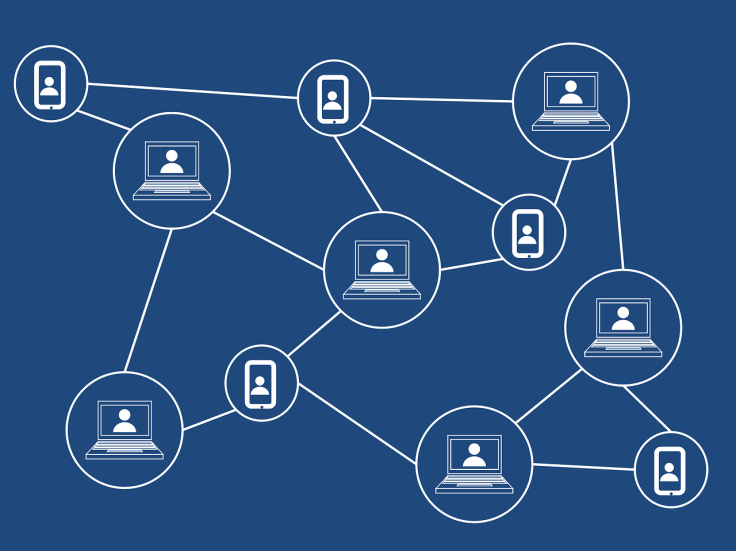DAGGs: The DAO Evolution Of GameFi
In addition to decentralized finance (DeFi) and non-fungible tokens (NFTs), gaming has emerged as a fast-moving sector, helping propel blockchain technology beyond the frontiers of cryptocurrency speculation.
The GameFi model (a combination of gaming and finance), which incentivizes the participation of players in what is known as play-to-earn (P2E) gaming, is a potent attraction, with some gamers earning meaningful incomes from play. In many ways, this movement is helping position blockchain for even greater long-term success as it introduces the underlying technology to gamers and those who wish to earn from playing through greater financialization.
While blockchain gaming still doesn't feature the same level of gameplay, graphics and uptime that triple-A gaming titles sport (development on this is well underway), the idea of in-game asset ownership is one area where blockchain gaming has overtaken its traditional peers. The use of NFTs to represent in-game assets and make them more easily exchangeable or tradeable, not to mention the staking possibilities, has awakened a whole new economy.
Yet, amid these realities, gaming has become a victim of its own success. Popular play-to-earn titles (we shall not name names) at one point demanded thousands of dollars worth of NFTs to participate, creating a prohibitively higher entry point for many aspiring players. Higher barriers to entry mean greater exclusivity, contradicting the inclusivity that blockchain technology ordinarily seeks to promote.
Fortunately, just as communities are potent forces in other areas of blockchain technology, they too can play an outsized role in promoting fairer and more inclusive gameplay through the novel application of decentralized autonomous organizations (DAOs).
From Guilds and DAOs to DAGGs
Blockchain gaming's trajectory has in many ways shadowed developments in the traditional gaming sphere, and one of the most earnest examples is the emergence of guilds. Guilds represent competitive groups of players and investors seeking to leverage their collective abilities and in-game assets to generate shared financial rewards. Effectively, this model helps players collaborate financially.
Many guilds have already grown within the blockchain space, and among the biggest are Yield Guild Games, Merit Circle, Avocado Guild and Good Games Guild (GGG). Some of these guilds control billions of dollars worth of in-game assets (NFTs in this case).
Guilds conduct extensive analyses of games they believe will demonstrate lasting staying power before buying and curating NFT assets for those specific titles they believe will succeed over time. Guild token holders benefit from access to these assets, which behave almost like indices that offer rewards in the guild's native token. Therefore, guild token holders share in the revenue from NFT lending and the price appreciation (or depreciation) of NFTs over time.
Part of any guild's success depends on lending NFTs to gamers and aspiring players, known as "scholars," for a share of any in-game rewards during gameplay. That said, applying to join is difficult for a player that wants to get involved in games but doesn't have the initial capital required to participate. Limited Guild slots for recruiting "scholars" make applications extraordinarily competitive and ultimately less inclusive, leaving many potential players out of the equation.
Moreover, guilds are not strictly democratic institutions, and the selection process for scholars is opaque at best, with some commentators accusing guild decision-makers of rigging the process. Therefore, while the guild is not without merit, and the model does feature some valuable attributes, it isn't a perfect model for fairness in gameplay.
However, this is where a DAO can have a lasting impact on a gaming guild's operational success. Since they first arrived via the Ethereum network, DAOs have emerged as a powerful tool for forming communities, voting on initiatives and marshaling pooled resources for multiple aims. A recent example was ConstitutionDAO, which was formed to bid on a copy of the US Constitution. Although the bid fell short, the effort raised over $40 million, highlighting the impressiveness of the model.
The governance aspect is what stands out primarily from the DAO model and its application in the gaming sphere. To offset the heightened barriers to entry currently facing prospective blockchain gaming participants, merging the beneficial attributes of both DAOs and guilds into a new, decentralized autonomous gaming guild (DAGG) harbors the potential to overcome the lingering inclusivity drawback.
A DAGG can ultimately provide more transparency to a gaming guild by putting more functions of the guild in the community's hands through governance and voting measures. Moreover, it can cultivate a more collaborative, community-centric environment that collectively benefits gameplayers, aspiring players and in-game NFT asset holders. Adding the transparency available through a DAO might also improve the "scholar" selection process, building multiple efficiencies that eventually translate to more value for DAGG members.
DAGGs as the Key to Unlocking Greater Adoption
Blockchain gaming serves as a big source of awareness surrounding blockchain technology as GameFi becomes popularized throughout the crypto sphere and beyond. However, like many other blockchain activities, be it mining, validation or otherwise, the concentration of digital assets has also manifested in the gaming sphere over time. Guilds already control a considerable amount of NFTs required for gameplay, and getting involved requires a significant upfront investment from players who just wish to participate.
Accordingly, DAGGs demonstrate the power to potentially democratize these holdings to a certain extent and grant more widespread access to the tools needed to participate competitively in gameplay. Taking a page out of the community governance playbook that other networks and applications have leveraged for their ultimate success, gaming too can embrace this very form of democratization that translates to greater inclusivity.
Any network's success ultimately depends on its member's participation, and DAGGs represent the quickest path to inviting the greatest participation in blockchain gaming possible. Not only can this model promote the space itself, but it can also onboard ever-larger numbers of individuals into the broader blockchain ecosystem, ultimately benefiting all blockchain stakeholders.
(Yves La Rose is the executive director and founder of the EOS Network Foundation)

© Copyright IBTimes 2024. All rights reserved.



















